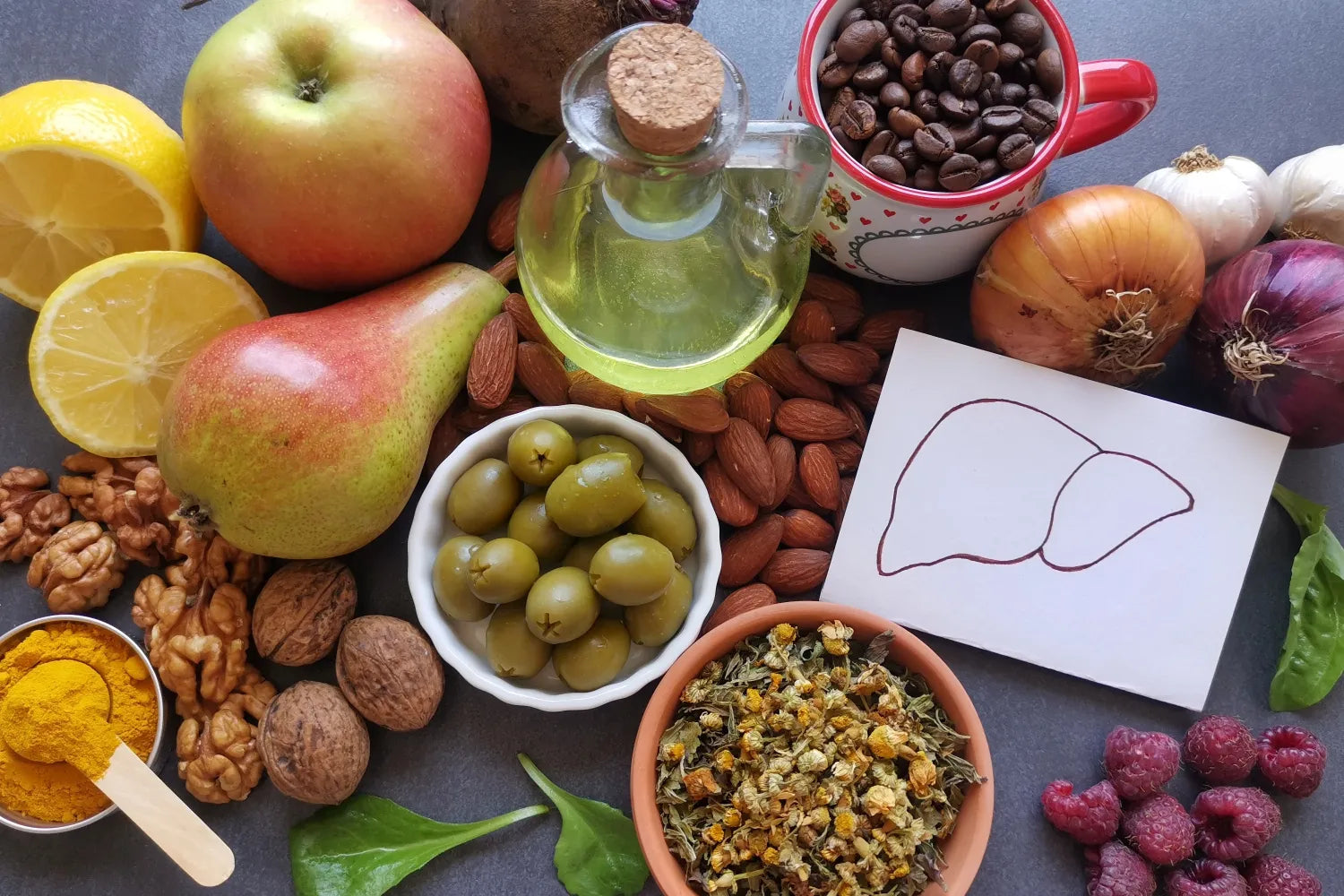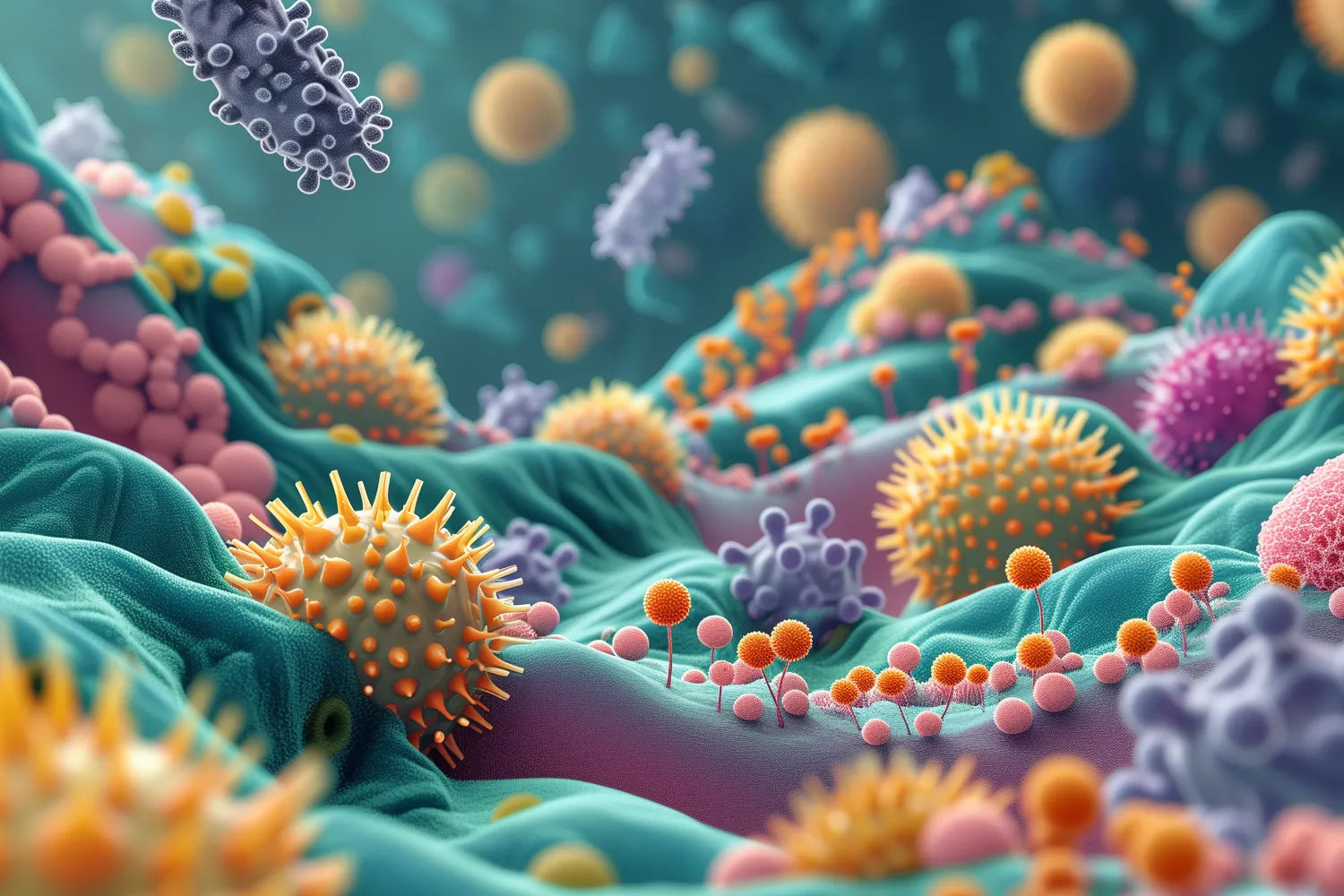
Dr. Eric Venn-Watson’s Highlights
All of us experience digestive issues from time to time, but feeling full, nauseous, or constipated much of the time can make your life miserable. Slow digestion can be an easily corrected issue if you know how digestion works and what you can do to improve it.
Let’s talk about what happens to your food when you eat it and how you can speed up your digestion to get relief and feel better.
The Digestive Process
The entire digestive process takes about 24 hours in a person whose digestive tract is healthy and who eats a healthy diet. The time it takes from when your food enters your mouth and leaves your body is called transit time.
Transit time is regulated by a process called peristalsis. This muscular movement happens in the walls of your stomach, in your small intestine, and in your large intestine. This movement is consistent and is what causes the food you eat to travel through your system and eventually leave your body.
It’s important your food passes through all stages of digestion in a timely fashion so that nutrients can be properly absorbed. Digestion is a multiple-part process.
Here’s a little timeline of what happens between your mouth and the excretion of waste:
- Food enters the mouth and is ground down via chewing, also known as masticacation. Saliva begins to break down the food in your mouth, making sugars easier to digest in the stomach.
- Food then passes into the stomach where it is treated with gastric fluid that further breaks it down into nutrients to be used by your body. Proteins begin digestion in the stomach.
- After passing through the stomach, your food moves into the small intestine. It will spend most of its time in the small intestine, where bile and pancreatic fluid helps break down fats, carbohydrates, and proteins. Once the food leaves the small intestine, most of the nutrients have been removed.
- The large intestines remove water from your food and any final nutrients and salts that the body might still use. This leaves the food in a solid form that can easily be passed.
In short, there’s a lot of digestion going on in the short time between eating your food and passing the leftover waste product. There’s also a lot of chances for kinks to develop in the system and slow your digestive process.
What Happens When Digestion Is Slow?
Most of the time, digestion happens just as it should. However, if you feel like your digestive tract doesn’t work as quickly as it should, you may experience unpleasant symptoms:
- Constipation. While bowel movements are specific to each person, constipation is considered having less than three bowel movements per week.
- Hard, difficult to pass stool.
- Upset stomach, bloating, or feeling overly full.
These symptoms are also referred to as “lazy bowel” syndrome. You may experience them from time to time or continuously. The culprit is food moving too slowly through your digestive tract. When your digestive tract muscles don’t move as quickly as they should, too much water can be absorbed from your food, causing it to harden and become difficult to pass.
Gastroparesis is another condition that can cause digestion to take longer than normal. This condition is rare but is characterized by a lack of peristalsis with the stomach muscles. It’s not known what causes gastroparesis, but having diabetes seems to trigger its occurrence.
Gastroparesis symptoms include:
- Feeling full after just a few bites of food
- Nausea, vomiting
- Malnutrition and weight loss
If you suspect you have gastroparesis, speak to your healthcare provider about your options. If a lazy bowel is your issue, here are a few proven methods of speeding up the digestive process.
5 Easy Ways To Speed Up Digestion
Digestion is tricky; the goal is to speed it up if it is sluggish, but not create a situation where you end up with rapid digestion that leads to diarrhea or malnutrition. The best approach to aiding digestion is by doing a little maintenance on a healthy lifestyle.
1. Exercise 30 Minutes Per Day
Regular exercise is vital to a healthy lifestyle and to maintain physical fitness, but it also aids with digestion. Exercise increases metabolism which causes the muscles along your digestive tract to contract more.
Ever feel like you need to use the bathroom immediately after a workout? The reason is that your muscles are contracting more, which can sometimes give you the urge to go.
2. Eat More Fiber
Obviously, an easy solution for speeding up digestion is by increasing your fiber intake. Fiber adds bulk to your waste and helps encourage peristalsis in your digestive tract.
However, if you already have a high-fiber diet, this may not be the best option. Increasing your fiber can cause you to experience gas, bloating, and intestinal cramping if you increase too quickly.
3. Use Probiotics
The health of your gut refers to the health of the microorganisms that live in your digestive tract. These organisms help you digest your food properly and keep your digestion running smoothly. When the levels of healthy organisms in your gut become unbalanced, poor digestion can follow.
Eating foods with living organisms (like yogurt, sauerkraut, or other fermented foods) can help reestablish homeostasis with your gut flora and encourage proper digestion. Probiotics are also available in capsule form.
4. Drink More Water
You may not think you’re dehydrated, but if you are experiencing constipation, you just might be. Increasing your water intake (especially on days when you are physically active) is key to improving digestion and your overall nutrition.
You don’t need to aim for gallon upon gallon of water per day. Simply drinking enough water to keep your urine clear is an indication that you’re on the right track. Adding more water helps your food pass more easily through your intestines, which can eliminate cramping and constipation.
5. Try a Supplement
There are plenty of supplements available to help aid digestion, so it’s important to know which ones work and which ones aren’t worth your time. Why not try a supplement that supports your overall health and gives you additional benefits aside from better digestion?
Fatty15 is the once-a-day supplement that supports your total health and wellness on the cellular level. Taking just one capsule a day can help improve your digestion by targeting the cells that control it.*
What makes it work? Pentadecanoic acid.
Elevate your cells. Elevate your self.
Pentadecanoic Acid and Your Digestive System
It’s no surprise that most of the people experiencing digestive issues are over the age of 25. As we head further into adulthood, our bodies simply get older. Aging happens on the cellular level. Cells make up organs that make up entire systems. When your cells are sick, you become sick.
When the cells of the digestive tract become sluggish and weak with age, our digestion and metabolism can take a hit. Even if we do all the right things, our bodies may not respond like they used to. That’s why pentadecanoic acid is so important.
Pentadecanoic acid, also known as C15:0, is an odd-chain, saturated fatty acid that an increasing body of research shows is the first essential fatty acid to have been discovered in over 90 years.†
C15:0 helps encourage proper digestion by deep diving into your cells and helping restore their vitality:*
- Cell membranes. As we age, the protective walls around our cells begin to weaken, leaving our cells vulnerable and fragile. C15:0 is a sturdy fatty acid that gets into cell membranes and fortifies them, strengthening them against external stressors and oxidative damage.
- Mitochondria. Our cells' mitochondria become sluggish over time, making it harder for our cells to carry out their specific functions. This can lead to organs that fail and systems that no longer work as efficiently. C15:0 bolsters mitochondria by increasing their function by up to 45%. That means cellular metabolism gets support, which supports metabolism and digestion.
C15:0 also binds with special receptors in the body that regulate appetite, called PPARs. By interacting with these receptors, it’s possible to be more successful with a healthy lifestyle.*
Fatty15
Because C15:0 is only found in trace amounts in foods like whole dairy and some fish, chances are you aren’t getting much of it in your diet. Fatty15 is the only supplement to contain FA15™, the pure, vegan version of C15:0.
Just one simple capsule per day can help support your digestion and promote a healthy lifestyle.*
Speed Up Your Food’s Daily Commute
Everyone feels a little full and sluggish occasionally, but for slow digestion that sticks around, try changing up your diet and exercise routine and adding fatty15 into your health stack. Your intestines (and your entire body) will thank you.
Get started with fatty15’s 30-day trial kit today.
Sources:
Your Digestive System & How it Works | NIDDK
Constipation; Symptoms, Causes, Treatment & Prevention|Cleveland Clinic.org

Eric Venn-Watson M.D.
CEO, Co-Founder
Senior Scientist, Co-Founder
Eric is a physician, U.S. Navy veteran, and Co-founder and COO of Seraphina Therapeutics. Eric served over 25 years as a Navy and Marine Corps physician, working with the special forces community to improve their health and fitness. Seraphina Therapeutics is a health and wellness company dedicated to advancing global health through the discovery of essential fatty acids and micronutrient therapeutics.
You May Also Like...
10 Foods Good for Your Liver: The Ultimate Guide
Your liver does a lot for you. If it had a voice of its own, it might ask you to eat more veggies and cut back on your Old Fashioneds. Unfortunately, the liver doesn’t receive a lot of attention until...
How To Improve Your Gut Microbiome: 6 Tips
Interested in how to improve your gut microbiome? We’ve got six tips to help your gut thrive and improve your overall digestion.


